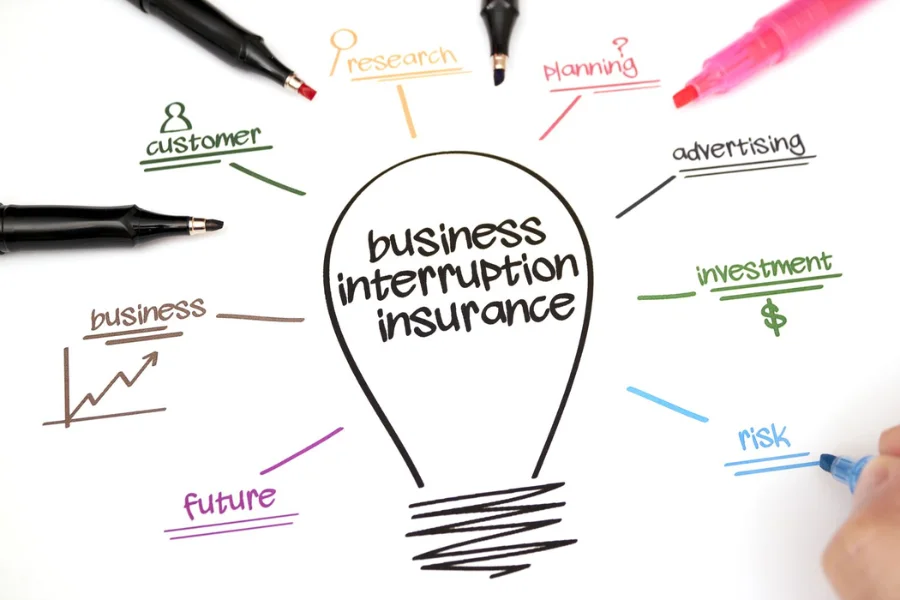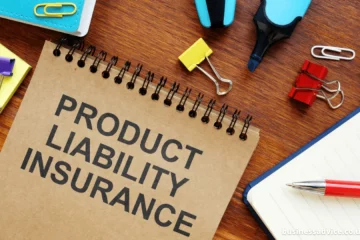How Business Interruption Insurance Can Help Your Business Bounce Back from Disasters

Business Interruption Insurance | Liebon
Running a business is tough work. There are always challenges that come with the territory, but one of the most difficult to prepare for is a disaster. Whether it’s a natural disaster like a hurricane or tornado, or a man-made disaster like a fire or flood, the impact can be devastating. Not only can disasters cause physical damage to your business, but they can also result in significant revenue loss due to temporary closures or shutdowns. Business interruption insurance is a type of insurance that can help businesses recover from such disasters. In this article, we’ll explore what business interruption insurance is, what it covers, and how it can help your business bounce back from disasters.
What is Business Interruption Insurance?
Business interruption insurance is a type of insurance that covers lost income and operating expenses when a business is unable to operate due to a covered disaster. The insurance is designed to help businesses get back on their feet after a disaster by covering the costs of temporary relocation, lost revenue, and other expenses that arise when a business is unable to operate.
Business interruption insurance is often included in a comprehensive business insurance policy, and it can be customized to meet the specific needs of a business. The policy typically covers losses resulting from physical damage to the business premises, such as damage caused by a fire or flood, but it can also cover losses resulting from other factors, such as a power outage or other utility interruption.
Types of Disasters Covered by Business Interruption Insurance
Business interruption insurance covers a wide range of disasters, including natural disasters like hurricanes, tornadoes, and earthquakes, as well as man-made disasters like fires, explosions, and civil unrest. It can also cover losses resulting from utility interruptions, such as power outages or gas leaks.
It’s important to note that business interruption insurance typically only covers events that are specifically named in the policy. For example, if a business purchases a policy that only covers losses resulting from fire damage, then losses resulting from a flood would not be covered. Businesses should carefully review their policies to ensure that they have coverage for the types of disasters that are most likely to affect their operations.
Business Interruption Insurance Statistics
According to a recent survey conducted by the National Small Business Association, nearly 30% of small businesses experienced a disruption in operations due to a natural disaster in the last 12 months. The same survey found that only 17% of small businesses have business interruption insurance, meaning that the majority of small businesses are not adequately prepared to handle the financial impact of a disaster.
This lack of preparedness can have serious consequences for small businesses. According to the Federal Emergency Management Agency (FEMA), 40% of small businesses affected by a disaster never reopen. This underscores the importance of having a plan in place to deal with the financial impact of a disaster, and having business interruption insurance can be a key part of that plan.
Understanding Your Coverage and Policy Limits
When purchasing business interruption insurance, it’s important to understand the terms of the policy and the coverage limits. The policy should specify the types of disasters that are covered, the duration of the coverage, and the amount of coverage for lost revenue and expenses.
It’s also important to understand the policy limits. Business interruption insurance policies typically have a maximum payout limit, which means that the insurance company will only pay up to a certain amount for losses resulting from a covered disaster. Businesses should carefully consider their potential losses and ensure that the policy limit is sufficient to cover those losses.
Filing a Claim for Business Interruption Insurance
If a business experiences a disaster and is unable to operate, it’s important to file a claim for business interruption insurance as soon as possible. The process for filing a claim will vary depending on the insurance company, but it typically involves providing documentation of the lost revenue and expenses resulting from the disaster.
It’s important to keep detailed records of all losses, including invoices, receipts, and other documentation that can help support the claim. The insurance company may also require an inspection of the business premises to assess the extent of the damage and to determine the amount of the payout.
Choosing the Right Insurance Provider for Your Business
When choosing an insurance provider for business interruption insurance, it’s important to consider factors such as the company’s reputation, the cost of the policy, and the level of customer service provided. Businesses should research potential providers and compare policies to ensure that they are getting the coverage they need at a price they can afford.
It’s also important to work with an insurance agent who has experience working with businesses in your industry. They can provide valuable guidance on the types of coverage that are most important for your business and can help you navigate the claims process if a disaster does occur.
Conclusion
Disasters can strike at any time, and they can have a devastating impact on businesses of all sizes. Business interruption insurance is a valuable tool that can help businesses recover from the financial impact of a disaster by covering lost revenue and operating expenses. By understanding the types of disasters that are covered, the policy limits, and the claims process, businesses can ensure that they are adequately prepared to handle the financial impact of a disaster and can bounce back quickly.











